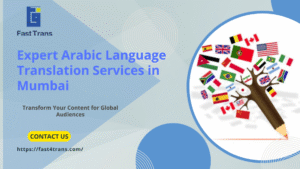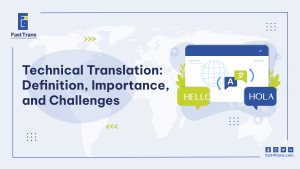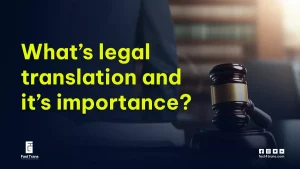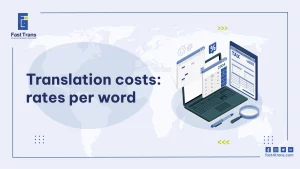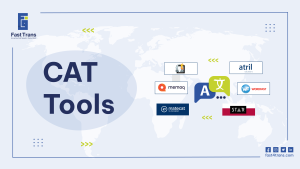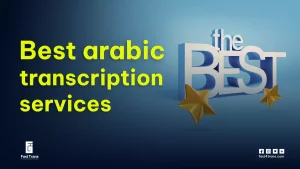Arabic game localization is all about tailoring video games for Arabic-speaking audiences, from translating dialogues and UI to adapting visuals and audio. By ensuring cultural relevance—like right-to-left text alignment and avoiding offensive content—developers can boost app store rankings, expand their reach in the booming mobile gaming market, and enhance user engagement. It’s a key strategy for maximizing profits, building inclusivity, and staying ahead of the competition while making sure the game resonates with local norms and preferences.
What is Arabic Game Localization?
It refers to a variety of processes that aim at adapting video games holistically, handling both textual and non textual aspects, with the goal of making it familiar and easy to use by the target user/gamer.
What is localized in games?
- User Interface (UI)
- Menus
- Game Instructions
- Visuals/images
- NPC or Non-Player Character Dialogues
- Quest Descriptions
- In-game Announcements
- Manuals and Help files
- Error messages
- Audio and voiceovers
- Cultural references
- Packaging
Read more: The Complete Guide to Saas Localization
Why Should You Arabic Localize Your Video Game?
Arabic game localization is essential for expanding market reach, maximizing ROI, and tapping into the lucrative $90 billion mobile gaming segment. By resonating with Arabic-speaking audiences, it enhances diversity, inclusivity, and boosts app rankings, ensuring competitive success in a thriving global market.
1. Maximize profit and return on investment (ROI)
Although localization can be a long and expensive process, depending on your methodology, however, it’s a must-have investment for your product if you’re aiming at an unprecedented boost in sales, especially if the game is already wanted elsewhere and the users are waiting for the day it’s finally available in Arabic.
2. Build a good reputation for diversity and inclusivity
Arabic Localization can crown you as a communications expert if you manage to talk to the target audience in a way that fully resonates with them, leaving no room for bias, discrimination, or offensive implications-which can happen often with games. This puts you at the top, gaining more competitive edge than ever.
3. Boost App Store and Google Play Ranking
The math is simple; if your game is localized into Arabic, that increases the chances of it getting downloaded, and receiving great reviews. For example, In 2024, the Video Games market is projected to reach a revenue of US$282.30bn.
Do you what contributes by almost 50% of this revenue? Mobile games indeed!
In 2023, $184 billion was generated by all types of games, the mobile game market share was 49% or $90 billion.
It’s a race you don’t want to miss out on.
What are some Game localization examples?
Game localization involves adapting games for specific audiences, as seen with Pac-Man, renamed from Puck-Man to avoid negative connotations, and its ghost names altered for Western appeal. Uncharted benefited from early localization during development, while Zero Wing is infamous for its “All your base are belong to us” mistranslation meme. Persona 5 balanced preserving Japanese culture with English adaptation, and Call of Duty: Modern Warfare 2 faced bans in Russia due to a critical translation error altering gameplay context.
1. Pac-Man
Localized from Japanese. One major localization step was to change the name from Puck-Man to Pac because Puck in English was thought to have negative connotations.
Not only that, the names of the ghosts were originally based on colors, like red, pink, and blue.
However, the English version of Pac-Man doesn’t have the colors, but rather the names were switched to Pinky, Inky, Blinky, and Clyde, as the odd one out.

Source: Mobidictum
2. Uncharted
It was translated from English to Japanese, and yet, like most popular games not everyone admired the translation. However, it’s worth noting that the localization process actually began when the game was still in the development stage, and got better and better with every release. Making this a classic example of how early planning for localization can pay off in the long run. The dubwork is apparently really good.

Source: Neoseeker
3. Zero Wing
This game became famous because of its poor translation, Imagine that, but don’t rush to make it your cheaper way to get your game noticed
In particular, there was a big grammatical error in the sentence “All your base are belong to use” which you might recall as an internet meme.

Source: legends of localization
4. PERSONA 5
Another Japanese game. Opinions split on whether its localization into English was accurate. For the most part, Persona 5 is very Japanese-centric, translators tried their utmost best to localize it into the English language without completely sacrificing the authentic Japanese experience in the game. Despite that, it might entail a few translation fails that the users picked up on.

Source: Forbes
5. Call of Duty: Modern Warfare 2
Call of Duty was once banned in Russia because of a massive translation error. In one of the dialogues with the characters, one said “Remember, no Russian” as in ‘don’t speak Russian while we’re on this mission..’ but it was translated to “Kill them, they’re Russian”
Gasps!

Source: Fandomwire
Challenges of Adapting Games for Arabic Localization
Adapting games for Arabic audiences involves overcoming challenges like integrating right-to-left text alignment, addressing complex grammar and regional dialects, and ensuring cultural relevance. Developers must also tackle font compatibility, voice synchronization, limited localization resources, and technical constraints in game engines to deliver a seamless and engaging experience.
1. Right-to-Left (RTL) Script Alignment
Arabic is written from right to left, which can pose significant challenges for game UI/UX design. Adjusting text, menus, and in-game interfaces to accommodate RTL text often requires significant reworking of layouts and code, especially for games initially designed for left-to-right languages.
- Solution: Developers must ensure proper mirroring of text boxes, navigation flows, and elements such as buttons and icons to maintain a natural user experience.
2. Complex Grammar and Vocabulary
Arabic grammar is more complex than many other languages, with different sentence structures and a rich vocabulary. The language also includes formal Arabic (Modern Standard Arabic) and numerous regional dialects, which adds to the complexity of deciding the tone and style of the localization.
- Solution: Using Modern Standard Arabic is a common approach as it is widely understood, but it may feel less natural to some players. Testing and refining the translation for the target audience is essential.
3. Cultural Sensitivities
Certain aspects of a game, such as character design, storyline, or visuals, may not align with cultural norms or values in Arabic-speaking regions. For example, depictions of violence, religious symbols, or inappropriate attire can lead to negative feedback or even bans in certain countries.
- Solution: Cultural adaptation, also known as “transcreation,” ensures the content is respectful and resonates with the audience while maintaining the game’s core essence.
4. Font Compatibility
Arabic typography presents unique challenges due to the cursive nature of the script, where letters are connected in different forms depending on their position within a word. Poorly designed fonts can result in illegible or unattractive text.
- Solution: Game developers must choose or design fonts that support proper Arabic rendering and readability while fitting the game’s aesthetic.
5. Voiceovers and Audio Synchronization
Arabic voice localization involves challenges in lip-syncing and timing. Arabic phrases are often longer than their English counterparts, making synchronization with character animations difficult.
- Solution: Adjusting dialogue pacing or tweaking animations to match localized audio can enhance immersion.
6. Limited Localization Resources
Compared to widely used languages, Arabic localization tools, resources, and experienced professionals are relatively scarce. This can lead to inconsistencies or delays in the localization process.
- Solution: Investing in skilled translators and localization teams familiar with gaming contexts is critical to maintaining quality.
7. Technical Constraints
Some game engines may not fully support Arabic text, leading to issues such as reversed characters, misaligned text, or overlapping elements. These technical hurdles require additional development effort.
- Solution: Collaborating with developers and testing extensively ensures the game engine can handle Arabic text rendering and integration properly
Read more about: Arabic gaming localization challenges
Best practices for localizing your game to Arabic
To successfully localize games for Arabic-speaking players, focus on cultural relevance, language precision, and seamless UI adaptation. Use Modern Standard Arabic for broad accessibility, optimize visuals and audio to respect regional norms, and ensure right-to-left text alignment. Prioritize high-quality translation, professional voiceovers, and localized marketing to resonate with the audience while addressing gameplay and payment preferences.
1. Understand Cultural Nuances
- Respect cultural norms: Avoid content that may be offensive or misaligned with local traditions, such as certain themes, imagery, or language.
- Adapt characters and narratives: Ensure that characters’ names, stories, and behavior are relatable to Arabic players when possible.
- Consider holidays and traditions: Use culturally relevant events and references, such as Ramadan or Eid, to resonate with the audience.
2. Use the Correct Arabic Dialect
- Opt for Modern Standard Arabic (MSA) for text as it is widely understood across Arabic-speaking countries.
- For voiceovers or specific regional appeal, consider local dialects like Gulf Arabic or Egyptian Arabic, depending on your target market.
3. Right-to-Left (RTL) Text Alignment
- Arabic is written from right to left, so adapt your user interface (UI) accordingly.
- Ensure text boxes, buttons, and other UI elements support RTL scripts without breaking the design.
- Test RTL layouts to avoid alignment issues, such as text overlapping or improper spacing.
4. Font and Typography
- Use Arabic-friendly fonts that support all characters, including diacritics.
- Ensure proper kerning (spacing between letters) and line spacing to maintain readability.
- Avoid decorative fonts that may hinder comprehension.
5. Cultural Appropriateness of Visuals
- Modify visuals if needed to align with cultural expectations. For example, dress codes in character designs should respect modesty norms.
- Replace or adapt symbols, gestures, or imagery that may carry different meanings in Arab cultures.
6. High-Quality Translation
- Use professional translators who are native Arabic speakers and experienced in gaming terminology.
- Localize in-context: Ensure translators understand the game mechanics, genre, and narrative to provide accurate translations.
- Avoid machine translation for nuanced text like dialogues, quests, or humor.
7. Test with Native Speakers
- Conduct usability tests with native Arabic players to identify potential issues in translation, UI, or gameplay.
- Pay attention to feedback on immersion, clarity, and any cultural oversights.
8. Localize Audio and Subtitles
- Provide high-quality Arabic voiceovers when feasible, using professional voice actors familiar with Arabic gamers’ expectations.
- Ensure subtitles are synchronized with voiceovers and accurately convey the tone and emotion.
9. Optimize for Regional Preferences
- Adapt monetization strategies, such as localized pricing or in-game currency, to suit the market.
- Consider compatibility with local payment methods like mobile wallets or regional credit cards.
- Evaluate gameplay preferences: Arabic gamers often enjoy mobile and free-to-play games.
10. Adapt Marketing and Community Management
- Localize your website, trailers, and promotional materials into Arabic.
- Engage with the community on popular regional platforms and social media channels in Arabic.
- Be responsive to Arabic-speaking players’ queries and feedback.
Process of Arabic Game Localization
Arabic game localization involves adapting video games for Arabic-speaking audiences. This can range from translating packaging and manuals for informed players, partial text-only adaptations for elements like dialogue, to comprehensive localization covering all game assets, often employed by top-tier publishers to ensure cultural and linguistic relevance.
1. Box and Documentation Localization
Translating only the packaging, and manuals of the game for the target users. It’s used when the target audience is expected to already know the language of the game.
2. Partial Arabic localization
Here, localizers work with textual elements only and leave out things such as audio, video…etc. You can think of visual novels, where only the dialogue is translated but everything else seems to be put in place as is.
3. Full Arabic localization
The name is telling, this is where all game assets get localized, and it’s usually utilized by AAA game companies (major game publishers like Nintendo and Ubisoft) However, it’s different from internationalization.
Tips for optimizing your Arabic Game Localization process
Optimize Arabic game localization by ensuring cultural sensitivity, adapting to specific language locales, and aligning with legal and device-specific requirements. Maintain consistency with a style guide and rigorously test the localized version to enhance user immersion and compliance.
1. Prioritize cultural relevancy and sensitivity
Nothing could repel a gamer more than snapping him or her out of their gaming mode by dropping in a culturally insensitive or offensive word, sentence, or even a visual. Gaming can be a universal language, but what you need to tackle is immersing them more into the experience by tweaking things such as salutations, idioms, catchphrases, proverbs, colloquial language…etc.
Think about this, you’re introducing a game that’s big on Norse mythology to a Japanese audience, how do you think they can immerse themselves in it if it looks so foreign to them?
You might want to reconsider and reimagine things such as voice-over artists, copywriting, in-game audio, and much more.
2. You’re localizing for a certain locale, not a country
There’s a big difference between a language and a country. People who speak English can be found anywhere in the world. Therefore, you don’t use a flag to refer to the language, because simply the users don’t necessarily live in the country to which the flag belongs.
Identify language locales instead. For instance, identify the English as Irish English, Australian English, or UK English.
3. Optimize for all devices and Ensure Compatibility
In the country of origin, the game could be available only on PC, or Mobile. However, this might change when localizing for a different audience, the devices they mostly use for gaming are best to be optimized. Device compatibility is another part of the process.
4. Compliance with laws and regulations
One thing you never want to let slip is for your game to get banned because it doesn’t meet the legal requirements of the target country. You want to consider things such as age ratings, limits of explicit content, and topics that are a huge cultural taboo and can’t be normalized in certain religious communities. This involves regulations around nudity, and violence as well.
5. Aim for consistency in localization
When a team of outsourced translators works on the same game localization project, things can get messy because each one has their style, tone, and ways of spelling certain words. This will lead to many inconsistencies in the end that can directly affect the immersive experience you’re aiming at.
The solution to this? A comprehensive style guide that everyone has their hands on that helps control inconsistency as much as possible.
6. Intensive testing before release
This is the same with any software product that’s either released for the first time or after encountering updates to the public. It’s crucial to test it as a user, with a critical eye, and to invite gamers and users to give their feedback on the localization. This feedback you will surely get from them can make all the difference!
Read more: Localization Glossary
How Fast Trans can help with Localizing your Game?
Matching top-tier quality with a rock-bottom price in Fast Trans.
Level up your game localization game with Fast Trans! Pun intended.
At Fast Trans, we nearly cover all on-demand kinds of localization. In the case of game localization, we get our hands on natives and experts either in-house, freelance, or outsourced. This means we can basically localize your game into any language needed. Currently, our team supports 120+ languages and we’re always expanding.
Get in touch with our team here.
Conclusion
Arabic game localization involves adapting video games to meet the linguistic, cultural, and technical needs of Arabic-speaking audiences. This process includes the translation of various in-game elements like UI, instructions, dialogues, audio, and visuals, ensuring that the game resonates with the target audience. Cultural considerations, such as right-to-left text alignment, addressing local dialects, and avoiding content that could be considered offensive, are critical for ensuring the game feels familiar and immersive to Arabic players.
Localization for Arabic markets opens doors to a growing mobile gaming industry, which is projected to generate billions in revenue. By catering to Arabic speakers, developers can increase app store rankings, improve user engagement, and boost sales. The localization process also helps build a reputation for diversity and inclusivity, allowing developers to navigate regional preferences and comply with legal requirements. Careful planning and testing are essential to address technical constraints and ensure seamless adaptation to Arabic cultural and language norms.


